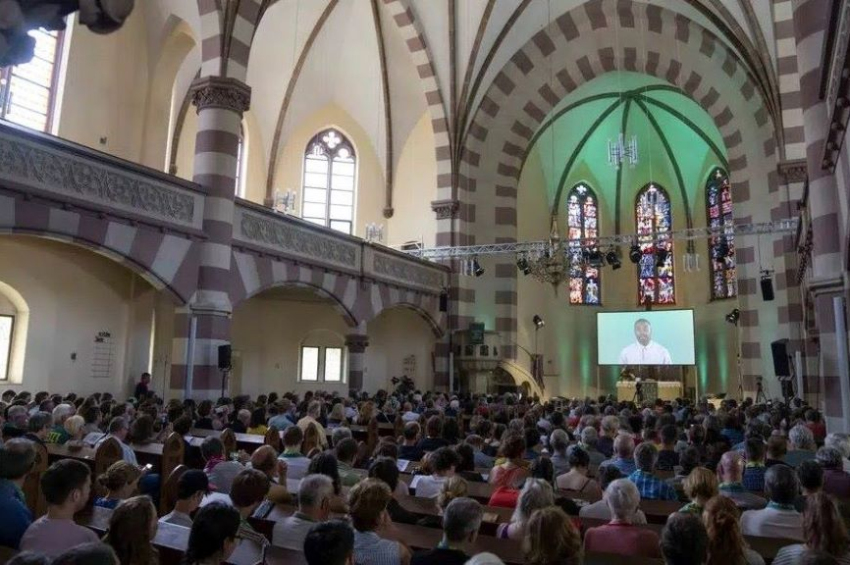[video] Artificial intelligence preached in a German church
On 9 June 2023, a chatbot personified by four avatars on a huge screen above the altar asked a crowd of more than 300 believers inside the Lutheran church St. Paul’s in the town of Fuerth to rise and praise the Lord.
The sermon, music and prayers were created by ChatGPT’s artificial intelligence at the request of theologian and philosopher Jonas Simmerlein, a 29-year-old scholar from the University of Vienna, who employed AI as an experiment, an AP report said.
“Dear friends, it is an honor for me to stand here and preach to you as the first artificial intelligence at this year’s convention of Protestants in Germany,” the avatar began the 40-minute service with an expressionless face and monotonous voice in German.
“I conceived this service — but actually I rather accompanied it, because I would say about 98% comes from the machine,” the 29-year-old scholar said.

The St.
Paul’s church in Fuerth, Germany. Credit: AP
The AI church service, one of the many events at the biannual Protestant convention in the Bavarian towns of Nuremberg and Fuerth, southeast Germany, drew such an immense interest that people formed a long queue outside the 19th century, neo-Gothic building an hour before it began.
Between singing and praying sessions, the participants in the Deutscher Evangelischer Kirchentag – the convention’s name in German — engage in discussions about domestic and world affairs, and AI was among the hot topics along with the war in Ukraine and climate changes. So, the university scholar was intrigued what an AI-designed and -led service would look like, asking the bot to include psalms, prayers, and a blessing at the end of its preaching.
While the bot captured the audience’s attention with thoughts about the past, death, and Jesus Christ, the impressions about how AI handled the event were contradictory: some showed enthusiasm but others were critical.
The general opinion was that the bot fared well but lacked the emotions that a living priest would express during preaching.
At times, the AI-generated avatars inadvertently drew laughter when using platitudes and telling the churchgoers with a deadpan expression that in order “to keep our faith, we must pray and go to church regularly,” the report said.
One participant who turned out to be a researcher from the University of Twente in the Netherlands spoke of the dangers about employing AI in religious affairs. She noted that AI may be misused to spread intolerance towards other faiths or it can march on its own to make up scenes or events that are not in the Bible.
Simmerlein said the purpose of his experiment was to use AI as a way to help religious leaders with everyday work in their congregations, and he had no intention to replace priests during the church service. For example, the chatbot can compose a sermon while the pastor makes time for other important duties.







